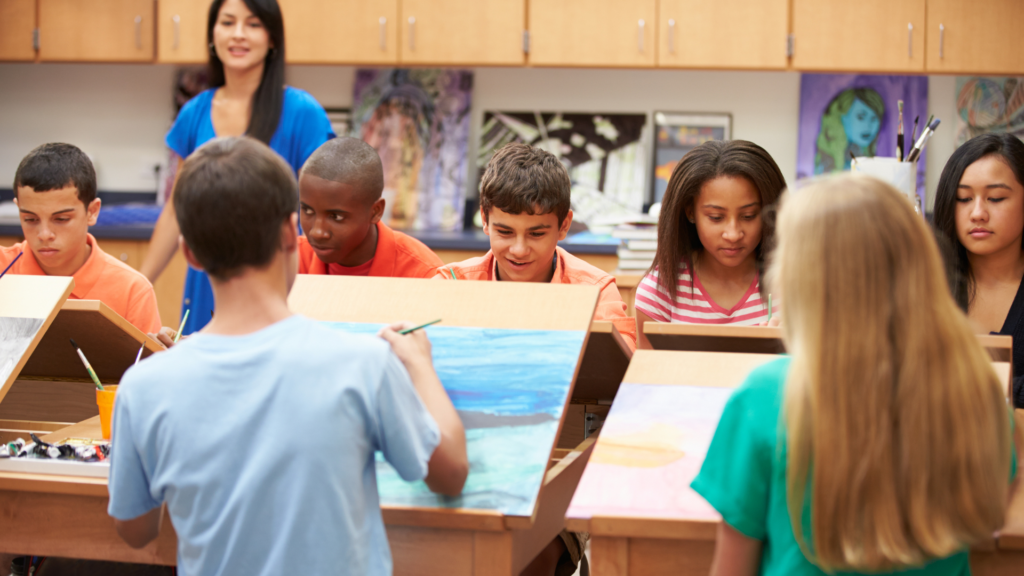A study of art in secondary schools carried out by the Free University of Brussels (VUB) indicates that art subjects are ideally suited to respond to the wide range of social challenges faced by students, including those from diverse backgrounds.
Master’s student of Educational Sciences (VUB) Ester Vanherck conducted a survey among art teachers for her thesis concerning the intercultural views and teaching practices of art teachers in secondary education, Bruzz reports. She found that arts provide an opportunity to deal with complex subjects in non-linguistic ways.
“Art is always about something,” says Vanherck. “That makes it easy for students to gain insights through art. Art subjects are very suitable for integrating non-Western content. They can stimulate students from diverse backgrounds to delve deeper into their own culture or examine the cultural environment they have entered.”
Vanherck surveyed teachers from all educational networks, "not exclusively teachers of art but also music and drama."
Art as connecting language
Teachers of art subjects generally have a relatively broad pedagogical freedom allowing them to respond to the cultural diversity of their students.
For their part, students can achieve learning results in different ways and creation can be regarded as a connecting, universal language.
By incorporating artistic expressions from different cultures and drawing on a variety of social, geographical and historical contexts, teachers can illustrate a pluralistic attitude.
Related News
- New school year highlights chronic teacher shortages
- 'Lost year': Foreign-language students particularly struck by pandemic
In doing so, art provides a refreshing perspective on the cultural surroundings of students. It can help to gain knowledge, reduce prejudice and stimulate a global view.
“My research is not only about schools in a metropolitan and multicultural context,” says Vanherck. “I also asked teachers from smaller cities such as Hasselt and Kortrijk, where some class groups appear to be predominantly white. Nevertheless, art teachers indicate that the presence of diverse student populations makes them think about their own teaching and curriculum.”
Diversity in art
In the survey, art teachers indicated that their training gave them only a limited preparation for the diversity of cultural backgrounds in their future classes. They stressed that the focus remains on their own Western art canon, with Picasso, the Flemish Primitives or Rubens forming the backbone of the syllabus.
“For some students, this is difficult to reconcile with the formation of their own cultural experiences, which they are explicitly asked to draw on as part of the curriculum."

